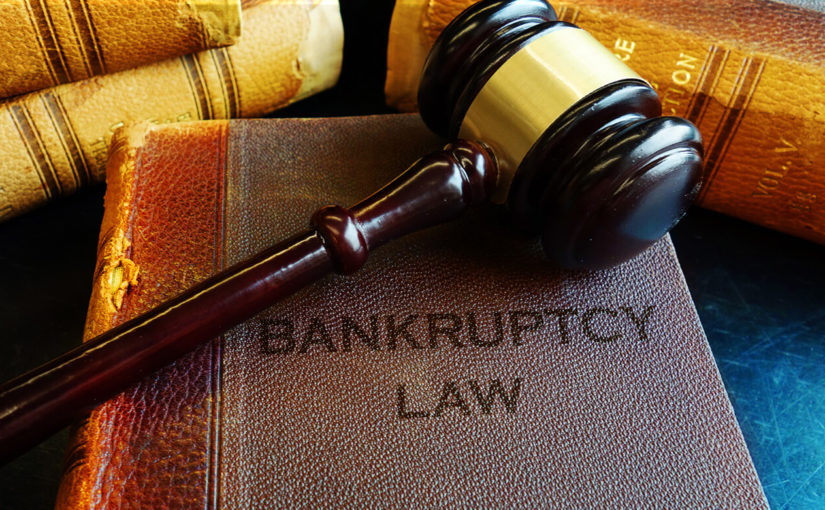
Interviewer: How serious is filing bankruptcy? Do many people just think, “Oh my goodness, my credit’s going to be ruined for the rest of my life and nobody’s ever going to want to touch me again.” How serious is it and is there a light at the end of the tunnel?
Bankruptcy Can Restore Your Credit, Not Ruin It
Jeanne: Yes, that’s a pretty big misconception. First off, if someone is possibly struggling with that or thinking, “Well, I’ve heard about bankruptcy but I don’t want to do it because I’m afraid.” Well, their credit’s probably already affected to begin with.
Not Addressing Your Debt Is More Harmful to Your Credit Rating than Filing for Bankruptcy
If you have $80,000 in credit card debt that you’re not servicing, that is harming your credit report. A bankruptcy is not going to hurt it any further. It’s actually kind of counterintuitive. There’s times when filing bankruptcy makes you more creditworthy. Say that you have $30,000 in credit card debt that you’re not servicing and the hospital’s also filed on your credit report because you owe $50,000 there.
That’s sitting on your credit report, and people who check your credit go, “Okay, there’s over $80,000 worth of debt that they’re not doing anything to pay off and those people may come take a judgment and try and get advantage with this individual. I’m not going to put my money at risk with that individual.
A Chapter 7 Bankruptcy Can Make You become a Better Credit Risk to Some Institutions
If you take a Chapter 7 bankruptcy and that debt is wiped out, they now no longer have those concerns that another creditor will usurp their ability to collect from you. Also, you can only take a Chapter 7 bankruptcy once every eight years and if you just got rid of $100,000 worth of debt and you can’t do it again for eight years, you actually become more lendable in some creditor’s eyes.
I’ve had many clients be able to finance a car right after Chapter 7 bankruptcy and most of my Chapter 7 clients report to me that they are immediately hit with credit card offers after filing. This is because the credit companies know they are prevented from filing again for at least eight years. They calculate that a person who has filed bankruptcy becomes a better risk.
Interviewer: Obviously, it won’t condemn them then for bad credit for the rest of their lives so that’s good. I think it’s a misperception.
Jeanne: Now another way to look at it is, of any kind, bad credit stays on your credit report for seven years. Bankruptcy stays on your credit report for 10 years. Now, if you file bankruptcy in May of 2010, that’s a discreet point in time and 10 years later in 2020, it’s coming off. But bad credit, such as if you’re carrying multiple tens of thousands of dollars of credit card debt and old medical bills that stays on your credit, that gets reported every month.
It Can Be Difficult to Remove Unpaid Bills from your Credit Report Unless You File for Bankruptcy
The seven years on bad credit never starts. If you owe $10,000 to Visa this month and you don’t make any attempt to pay it then next month, they’re going to inform the credit bureau that you didn’t make any payments in the next month they’re going to do the same thing. Bad credit falls off your credit report after seven years but sometimes the seven years never starts because each month that you don’t pay, it generates another report to the credit bureau.
You May Find It Becomes Much Easier to Finance a Car Purchase When your Debts Are Discharged in Bankruptcy
Car dealerships have to move product and there are all kinds of lenders in the auto realm and they will do whatever they can to get you financed, the minute you come out of bankruptcy. Mortgage underwriters are a little bit more conservative, rule of thumb is going to be at least three years past the bankruptcy. But anybody who wants to finance a house needs to know what’s important to mortgage underwriters and that’s going to be, you have a down payment, you have a steady job, do you pay where you stay.
If you’ve never owned a house and your credit report is full of broken apartment leases, that’s going to have just as big an impact as anything on your credit report. Also, if they look back over your employment history over the last three years and you don’t stay at any place longer than six months, that’s going to have an impact on your ability to finance a house purchase.
You have one problem with bankruptcy and two or three years later, you save for a down payment and you have a steady work history and you pay where you stay, whether it’s an apartment or the mortgage, that’s going to be a lot healthier for you than a person who has broken leases and job hopping.

